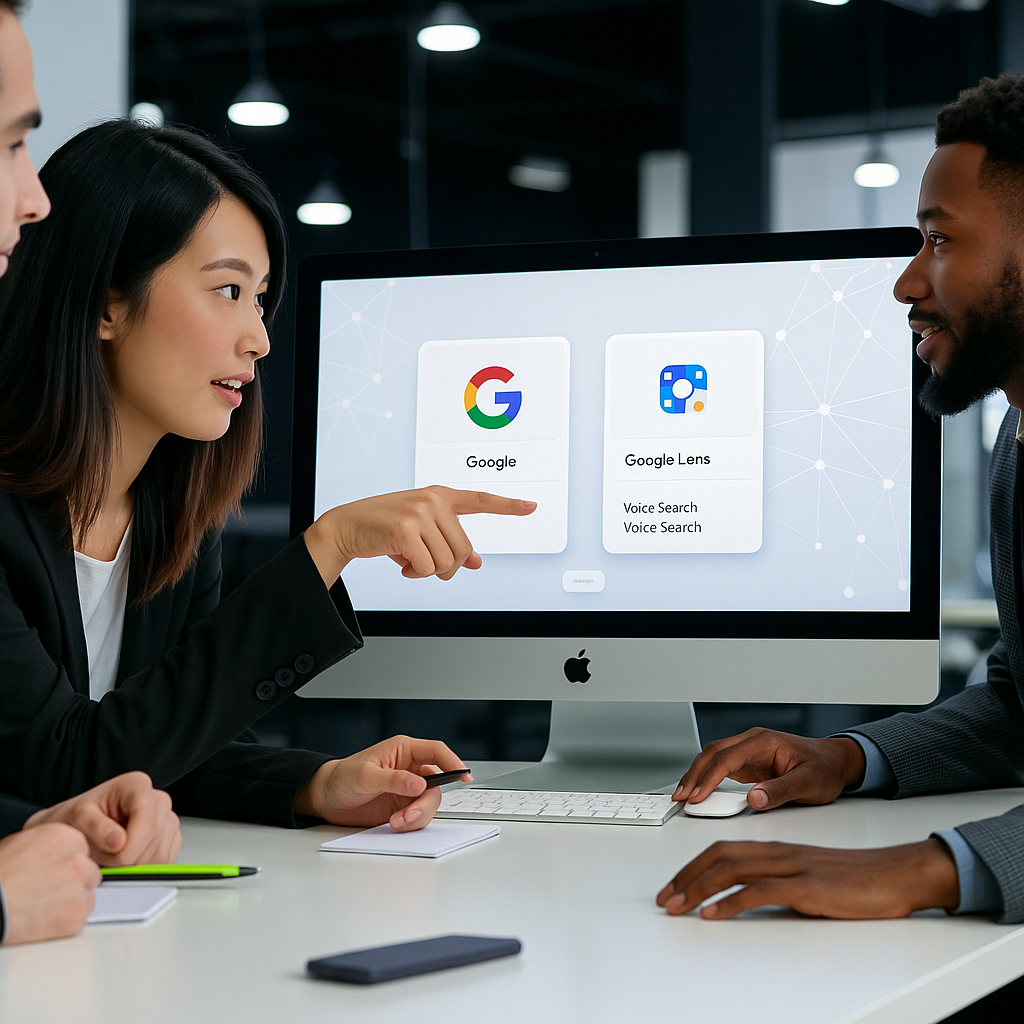Overview of Serving Issues with Google Lens, Discover, and Voice Search in 2025
Throughout 2025, users and industry observers have reported disruptions affecting Google Lens, Discover, and Voice Search. These issues include delayed content updates in Discover, inaccuracies in voice recognition, and occasional failures in image processing within Google Lens. Such problems have impacted user engagement and trust, as these tools are central to how many access information on their devices.

Nature and Impact of the Issues
- Discover: Users have experienced delays in content refresh rates, which reduces the relevance and timeliness of news and personalized updates. This lag disrupts the expected fluidity when using Discover for quick insights.
- Voice Search: Challenges include misinterpretation of queries, especially in noisy environments or with diverse accents. This leads to repeated commands and irrelevant results, causing user frustration.
- Google Lens: While powerful, it has struggled with image recognition errors, particularly when processing intricate or uncommon visuals, limiting its practical usefulness.
These disruptions have affected not only user experience but also confidence in Google’s search ecosystem. The issues have influenced engagement metrics, as some users turn to alternative platforms when these tools underperform. Website owners and digital marketers have also felt the impact due to fluctuations in traffic and visibility.
Google’s Response and Technical Improvements
Google has acknowledged these challenges and is addressing them through backend improvements focused on long-term stability and accuracy rather than quick fixes. Key areas of progress include:
- Natural Language Processing: Enhancements have improved Voice Search’s ability to understand conversational nuances and diverse speech patterns, helping it better interpret complex voice commands.
- Machine Learning and Neural Networks: Advances have enabled Google Lens to analyze and categorize visual information with greater precision, supported by expanded training datasets.
- Content Refresh and Latency: Efforts to reduce delays in Discover aim to maintain the speed and freshness of content, which is essential for user engagement.
A Google spokesperson stated, “We recognize the disruptions users have experienced and are committed to delivering a more consistent and intuitive experience across all our platforms.”
Broader Context
The serving issues have revealed the intricate dependencies these tools have on complex data processing and real-time content delivery. Regional disruptions affecting major cloud providers have further complicated service reliability, highlighting the interconnected nature of internet infrastructure.
Outlook for 2025 and Beyond
Ongoing updates suggest a gradual restoration of trust and functionality. Google’s focus on deeper contextual understanding and faster content refresh rates points toward more reliable and responsive experiences with Discover, Voice Search, and Google Lens. While some challenges remain, the progress made indicates a clear effort to align these tools more closely with user expectations.
Frequently Asked Questions About Serving Issues in 2025
Why does Discover sometimes show outdated or slow-refreshing content?
This results from balancing personalized, timely updates with managing vast data volumes. Google is optimizing backend infrastructure to improve content indexing and delivery speed.
Why does Voice Search sometimes misinterpret queries, especially in noisy environments or with accents?
Natural language processing struggles with speech variability and background noise. Recent algorithm improvements have enhanced understanding, but environmental factors still pose challenges.
Why does Google Lens occasionally fail with complex or uncommon images?
Image recognition depends on machine learning models trained on extensive datasets. Certain visuals with intricate details or unusual angles remain difficult to analyze accurately, though ongoing model refinements are reducing errors.
How do these issues affect user trust and engagement?
Inconsistent performance can lead users to rely less on these tools, impacting the broader digital ecosystem, including content creators and marketers. Google’s transparent communication and methodical improvements aim to restore confidence.
Moving Forward with Improved Reliability
The challenges faced by Google Lens, Discover, and Voice Search have underscored the complexity of delivering fast, accurate, and personalized information. Google’s continued investments in algorithms, infrastructure, and contextual understanding demonstrate a commitment to restoring and enhancing these services. Users can expect more reliable performance, quicker content updates, and smarter recognition capabilities as improvements continue throughout 2025, reinforcing these tools as valuable resources for everyday information access.
Original article by Search Engine Land: https://searchengineland.com/google-lens-discover-and-voice-search-serving-issues-456973
Quote from the article: “We recognize the disruptions users have experienced and are committed to delivering a more consistent and intuitive experience across all our platforms.”













.png)

